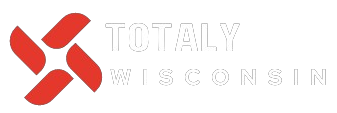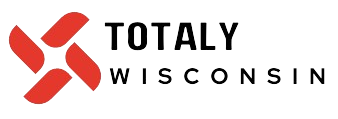Celebrate June, aka Milk Month, with Dan Brick, a dairy farmer from Greenleaf, Wisconsin.
Sustainability is key to Brickstead Dairy’s glowing future. With 1,200 acres of crops and 1,000 cows, neat water, vigorous soil and profitability are the three pillars that lend a hand the farm succeed
Dan’s great-great-grandfather emigrated from Ireland and started the dairy in 1848. Dan is the fifth generation of the Farm at Brickstead Dairy and has farmed since graduating from high school in 1992. He hopes his children will be the sixth generation to do the same.
Dan’s passion is dairy cows and he works closely with his shepherd and a team of consultants to manage the health of his herd.
What does sustainability mean on a dairy farm?
For Dan, sustainability means keeping the farm going for generations to come. He recognises that to be sustainable, the team needs to be aware of the environment in which they farm. Being good stewards of the land and the community is a priority at Brickstead Dairy.
Dan works with experts to promote environmental efforts on his farm. He meets regularly with a team of consultants who understand his goals and share his vision for a sustainable, profitable future. The team helps Dan decide what cover crops to plant and what recent environmental practices to try.
How do farms keep water neat?
Dan protects water resources around the farm by doing as little tillage as possible. Cover crops are also key to retaining water in the fields.
“Once these things are under control, the rest will take care of itself,” Dan said.
Farmers employ manure as a valuable fertilizer. When Dan spreads manure on his fields, he knows that cover crops will lend a hand absorb nutrients into the soil.
What are the benefits of sustainable agriculture?
Dan recognizes that to be sustainable, you have to be resource proficient. One of his goals is to keep operating costs low.
Clean water is an ongoing goal for Brickstead Dairy. By continuing to experiment with cover crops and implement recent conservation practices, Dan and his team will continue to keep the water around their farm and the entire catchment neat.
At Brickstead Dairy, sustainable field practices have led to healthier soil, which ultimately produces healthier crops. Feeding cows these healthier crops has led to better cow health and increased milk production at Brickstead.
How is dairy farming sustainable?
Dairy cows are the best recyclers. Cows eat the food that humans can’t digest and turn it into high-quality, nutritious milk. They are great consumers of byproducts or leftovers from food production, which they also turn into delicious dairy products. It’s a circular system on a dairy farm – cows eat feed and turn it into manure, which is used to fertilize crops, which are harvested and fed to cows, and the cycle begins again.


